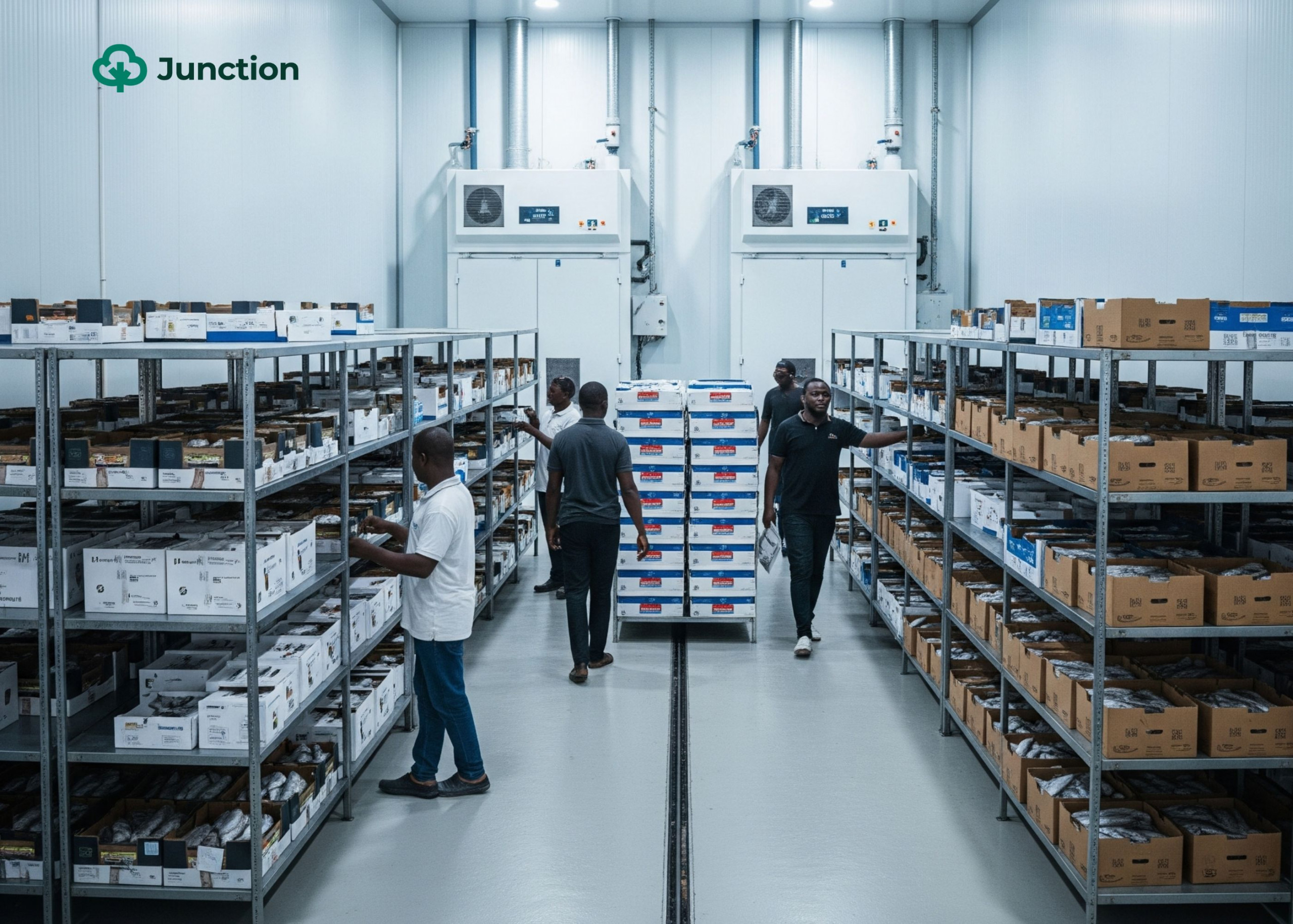You don’t need to own land to start a profitable onion business from the lucrative value chain. Onions are a household staple, used daily across Nigerian homes and restaurants. A recent surge in the commodities’ price led to a food crisis in the country.
The demand is massive, yet most farmers in Nigeria still follow traditional production and marketing methods, leaving plenty of room for newcomers to innovate, without needing farmland of their own.
Owning land in Nigeria can be a complex, risky endeavour and not worth the investment due to the country’s dual land tenure customary and statutory systems. They frequently overlap and conflict, creating room for disputes, land grabbing, and the risk of double allocation, especially when the same land is claimed under both systems.
Additionally, securing land in Nigeria often involves bureaucratic red tape, high documentation costs, and a lack of transparency. The process of verifying land titles is notoriously cumbersome.
Insecurity in certain regions, including pastoralist-farmer conflicts and insurgency, further complicates land use and ownership.
These challenges make land ownership expensive and risky, especially for new or small-scale agricultural investors, hence the rising appeal of alternatives like leasing, outgrower schemes, and contract farming.
Here are seven smart ways to tap into the onion business and start earning.
1. Lease farmland in onion-producing regions
Instead of buying land, consider leasing small plots from farmers in Northern Nigeria, where onions are primarily grown. Leasing arrangements are common and affordable, especially in states like Kano, Sokoto, and Kebbi.
It eliminates the hefty upfront cost and legal complexities of land acquisition, making it easier for small investors or first-time farmers to get started. You can channel your limited resources into actual farming operations, such as purchasing quality seeds, hiring labour, and managing pest control, rather than locking funds into land ownership.
Additionally, since you’re not tied to one location permanently, you can adapt to changes in soil quality, climate, or security conditions by simply switching locations from season to season. This is particularly valuable in Nigeria, where regional differences in rainfall, soil type, and market access can significantly affect productivity and profitability. Leasing allows you to farm only during the optimal seasons and exit unproductive or high-risk areas without loss of long-term capital investment.
Furthermore, leasing enables faster scaling. With minimal fixed assets, onion entrepreneurs can expand operations more quickly by leasing multiple plots across different regions or partnering with landowners through outgrower models. This also makes it easier to test different farming methods or crop varieties without the long-term risk associated with land ownership. In a market where one hectare can yield up to ₦16 million in revenue, the ability to stay agile and responsive is a major competitive advantage.
2. Become an onion aggregator
Becoming an onion aggregator is one of the most effective ways to profit from the onion business in Nigeria without owning or cultivating land. As an aggregator, your role is to bridge the gap between rural farmers and urban markets or exporters. This means you focus on sourcing onions in bulk directly from smallholder farmers, especially during peak harvest, when prices are low. With the right logistics in place, such as a small truck or rented transport service, you can deliver the produce to high-demand areas like Lagos, Abuja, or Port Harcourt, where prices are significantly higher, thereby making a solid profit margin.
Profitability in aggregation hinges on strong relationships, timing, and market knowledge rather than farming skills. By building trust with farmers, you can secure a consistent supply at favourable prices. Simultaneously, establishing links with wholesalers, retailers, and even export companies gives you multiple sales channels and better pricing power. Since you don’t bear the risks of cultivation, like pests, droughts, or poor yields, you can focus on maximising turnover and negotiating the best deals. With strategic buying, proper handling to avoid spoilage, and efficient logistics, onion aggregation can generate consistent and scalable income with minimal startup costs.
3. Offer onion storage and warehousing services
Offering onion storage and warehousing services presents a smart way to tap into the onion business without the burden of acquiring farmland. In Nigeria, a significant percentage of post-harvest losses in onion farming occur due to poor storage infrastructure. By renting or setting up a properly ventilated and dry storage facility in a key production area, you can help farmers and traders (aggregators) preserve their produce longer, especially during the peak harvest season when supply exceeds demand. Charging a storage fee creates a steady revenue stream while solving a critical problem in the onion value chain.
Beyond providing storage for others, you can also leverage this facility to engage in strategic buying and reselling. Purchasing onions in bulk when market prices are low and storing them until the scarcity period, typically between April and June, can yield impressive profits as prices rise sharply during these months. With effective inventory management and minimal spoilage, warehousing becomes a high-return, low-risk venture. This business model allows you to participate in the onion market’s profitability cycle without the operational stress and unpredictability of farming.
4. Invest in processing and packaging
Investing in onion processing and packaging allows you to transform raw onions into value-added products such as dried flakes, onion powder, or pre-sliced onions. You can extend shelf life, reduce waste, and cater to the growing demand for convenience foods. With relatively low-cost equipment and proper hygiene standards, you can start small and scale as demand grows. Securing a NAFDAC certification adds credibility and opens doors to supply supermarkets, hotels, and export markets.
In addition to processing, premium packaging of fresh onions offers another lucrative opportunity. Urban consumers are increasingly drawn to well-branded, cleanly packaged products that signal quality and hygiene. By packaging onions in branded, sealed bags, you can differentiate your product in a market that typically deals in bulk and loosely handled produce. This branding not only commands higher prices but also builds customer loyalty and positions your business for long-term growth, all without needing to own or farm land yourself.
5. Become a farm services provider
Onion farmers across Nigeria often require support for critical tasks such as seedling nursery management, fertiliser application, pest and disease control, and harvesting. By offering these services on a contract basis, you can work with multiple farmers throughout the planting and harvesting seasons and charge per task or hectare, depending on the service complexity and the farmer’s needs. This model ensures continuous work and income as long as farming activities are ongoing.
What makes this option especially profitable is the low startup requirement—primarily technical knowledge and simple equipment, alongside the ability to scale. You can start as an individual service provider or partner with an agronomist to deliver higher-quality, specialised services. Over time, as your reputation grows, you can expand into managing farm crews, leasing equipment, or even coordinating farm inputs for a fee. This approach keeps your overhead costs low while plugging you directly into the income flow of onion production.
6. Join or start a farming cooperative
In a cooperative setup, members combine resources such as finance, technical, or operations to lease land, acquire farm inputs, and handle production collaboratively. Even if you don’t farm directly, you can contribute in other ways, such as managing logistics, providing administrative support, or helping the group access markets. At harvest, profits are shared among members based on their level of contribution, allowing everyone to benefit from the group’s collective success.
Cooperatives also unlock opportunities that individual farmers often can’t access alone. Many government and donor-funded agricultural programs in Nigeria are designed to support cooperatives with grants, subsidised inputs, training, and access to finance. This means joining a cooperative can improve your profit margins and reduce business risk. With the right structure and transparency, a cooperative not only reduces individual startup costs but also enhances access to markets and external support.
7. Trade onions online or become a market connector
Trading onions online or acting as a market connector is a highly profitable and low-risk way to participate in the onion business without owning land. By leveraging digital platforms such as WhatsApp, Facebook, or a basic e-commerce site, you can connect onion farmers in production hubs like Sokoto or Kano with bulk buyers in urban centres. Many urban retailers, restaurants, and wholesalers struggle to source fresh onions consistently and affordably. By stepping in as the intermediary, you can coordinate orders, verify product quality, and arrange transportation, all while earning commissions or coordination fees.
This business model requires minimal capital but relies heavily on your ability to build trust, communicate clearly, and manage logistics efficiently. As your network grows, you can scale operations by partnering with transporters, hiring agents for field sourcing, or automating orders through digital tools. Since you don’t handle the physical farming or need storage facilities, your overhead remains low, and your earnings are tied to the volume of transactions you manage.
Final thoughts
In conclusion, Nigeria’s onion value chain offers a wealth of opportunities for entrepreneurs, even without owning a single plot of land. From leasing farmland and aggregating produce to offering storage services, processing onions, and providing farm support, the industry rewards innovation, adaptability, and strategic thinking. Each business model allows you to sidestep the heavy legal, financial, and security burdens tied to land ownership while still tapping into a high-demand market with strong profit potential.
The key is to identify where your strengths—capital, logistics, digital skills, or technical knowledge—can best fit into the value chain. Whether you’re partnering with farmers, providing services, or bridging the gap between rural producers and urban buyers, the onion business is wide open to creative, landless participation. With low entry barriers and multiple scalable options, it’s a smart space for aspiring agripreneurs looking to make a mark without the risk of owning land.
With an initial investment as low as ₦100,000, you can enter the market, scale gradually, and turn your hustle into a sustainable, profitable venture.



